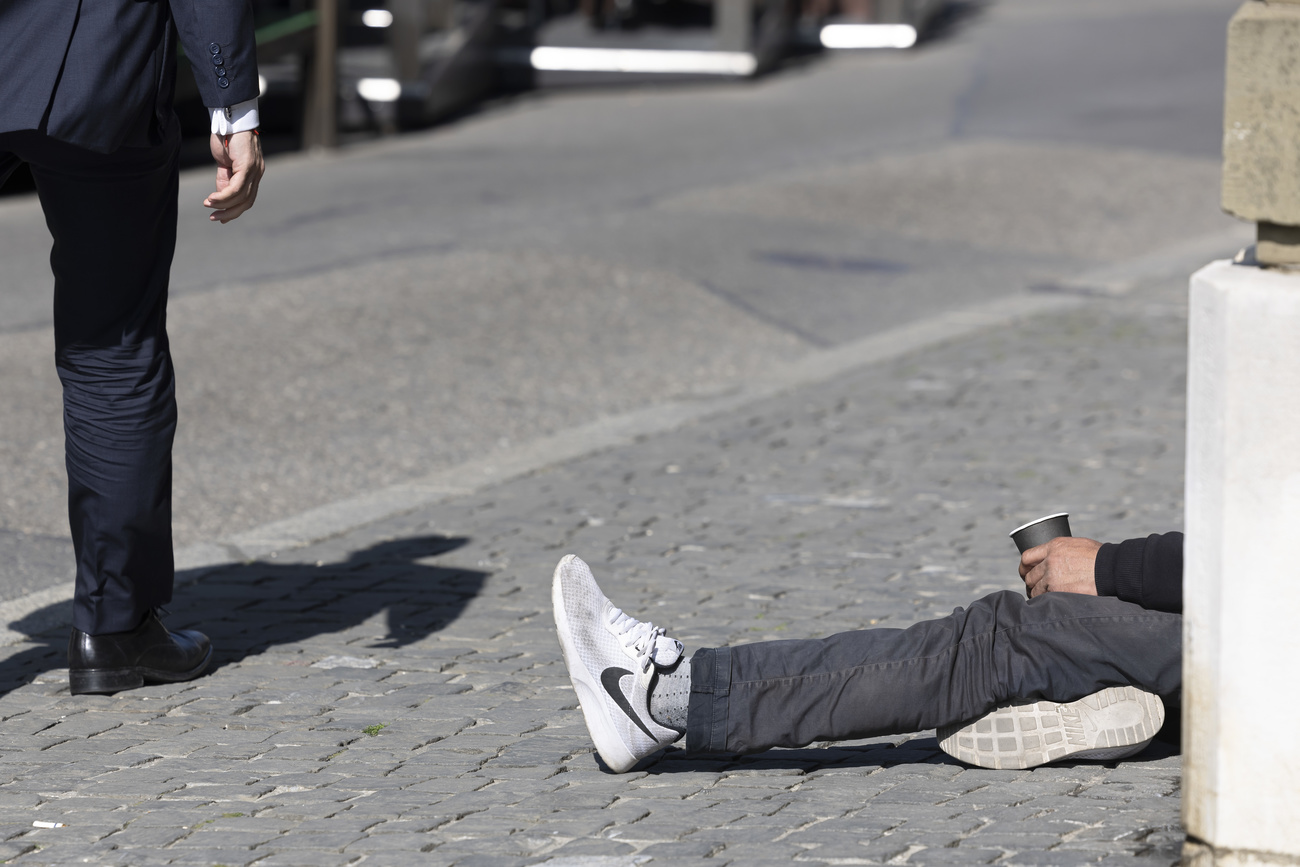
Changing drug use forces cities to come up with new solutions

Swiss cities are adapting their drug policies in the face of new forms of drug use. Thirty years after the open drug scene in Zurich, experts say it is time to act.
New ways of acting must also be developed because of new types of drugs, according to the organisation Addiction Switzerland. The arrival of ready-to-consume “crack rocks” in Geneva two years ago broke the relative stability of the drug landscape and consumption patterns in that canton, Addiction Switzerland deputy director Frank Zobel said on Wednesday.
In addition, drug use in public spaces is on the rise again throughout Switzerland – from Geneva to Basel, Lausanne, Chur and Zurich. Mini-drug scenes are the result. This is related to the very high availability of cocaine and a general social insecurity as a result of Covid, Zobel said.
Zobel notes that federalism has made it possible to find locally tailored solutions. Cities are once again providing resources to address the problems caused by drugs. This is good news, even if there is “no magic solution” that can be applied everywhere, he said.
+ 25 years on: the end of Zurich’s open drugs scene
The city of Chur is holding a press conference on Thursday to announce new measures to combat drugs after an open drug scene with more than 100 drug addicts has become established in the city in recent months.
New type of consumption
Crack cocaine already existed in Switzerland before it spread to Geneva, but in a different form. Users in German-speaking Switzerland or Vaud used to make this “smoking cocaine” themselves by mixing coke and ammonia or soda to make “freebase” or crack.
In Geneva, according to the Quai 9 drug contact centre, crack has become popular in the form of small, ready-made stones sold for CHF10 ($10.90) or less which have a devastating effect. The drug is easily accessible and cheap in this form, smoked in 20 seconds and has a strong and extremely addictive effect, according to Thomas Herquel of Quai 9. This type of crack was imported from France by Senegalese drug traffickers.
Many people go begging, and as soon as they have CHF10, they start smoking again – a vicious circle, Herquel continued.
+ How far is Switzerland in decriminalising drugs?
Exponential growth
In canton Geneva there are about 60 social workers and employees who take care of drug addicts. “The exponential growth of crack has drastically changed the milieu,” Herquel said. The compulsive use of crack creates an emergency situation that requires different care than that of heroin addicts, for example. The latter would take much more time for consumption.
Nevertheless, Switzerland is still far from the nightmare that made the open drug scenes in Zurich famous throughout Europe in the 1990s: thousands of heroin addicts and syringes were visible for all to see. At that time, according to Zobel, 300 to 400 drug addicts died of overdoses every year. The number of victims rises to 700 if one adds the AIDS deaths.
Today, according to Zobel, 100 to 120 drug addicts die directly from their addiction every year. Many of them are 50- or 60-year-olds who survived the scene in Zurich.
Addicts have learned to protect themselves better, he said. Care has also been strengthened and the circles concerned (hospitals, social workers, police, doctors) now act in a more concerted manner.
But the problem remains acute and the accommodation of addicts is one of the main concerns. Today’s drug addicts are marginalised, have no roof over their heads and no work, he said. In addition, there is the stress of searching for the drugs. The experts therefore plead for structures like dormitories or other shelters where addicts can rest.
This news story has been written and carefully fact-checked by an external editorial team. At SWI swissinfo.ch we select the most relevant news for an international audience and use automatic translation tools such as DeepL to translate it into English. Providing you with automatically translated news gives us the time to write more in-depth articles. You can find them here.
If you want to know more about how we work, have a look here, and if you have feedback on this news story please write to english@swissinfo.ch.

In compliance with the JTI standards
More: SWI swissinfo.ch certified by the Journalism Trust Initiative





























You can find an overview of ongoing debates with our journalists here . Please join us!
If you want to start a conversation about a topic raised in this article or want to report factual errors, email us at english@swissinfo.ch.